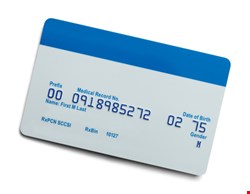
The number of victims whose name and personal identity have been used to fraudulently receive medical services, goods, and/or prescription drugs, including attempts to commit fraudulent billing, is on the rise. According to the 2013 Survey on Medical Identity Theft conducted by Ponemon Institute, medical identity theft and “family fraud” affected nearly 20% within the last year.
It’s a problem that affects an estimated 1.84 million people in the US, with victims forking out more than $12 billion in out-of-pocket costs.
The survey, sponsored by the Medical Identity Fraud Alliance (MIFA) with support from ID Experts, found that half of the consumers surveyed are not aware that medical identity theft can create life-threatening inaccuracies in their medical records. But medical identity theft victims surveyed experienced a misdiagnosis (15% of respondents), mistreatment (13% of respondents), delay in treatment (14% of respondents) or were prescribed the wrong pharmaceuticals (11% of respondents). Half of respondents have done nothing to resolve the incident.
As a corollary, 50% of consumers surveyed do not take steps to protect themselves, mostly because they don’t know how – in fact, 54% of consumers do not check their health records because they don’t know how and they trust their healthcare provider to be accurate. Likewise, 54% of respondents do not check their Explanation of Benefits (EOBs). Of those who found unfamiliar claims, 52% did not report them.
“Medical identity theft is tainting the healthcare ecosystem, much like poisoning the town’s water supply. Everyone will be affected,” said Larry Ponemon, chairman and founder of the Ponemon Institute, in a statement. “The survey finds that consumers are completely unaware of the seriousness and dangers of medical identity theft.”
The survey also finds that consumers often put themselves at risk by sharing their medical identification with family members or friends – unintentionally committing “family fraud.” In fact, 30% of respondents knowingly permitted a family member to use their personal identification to obtain medical services including treatment, healthcare products or pharmaceuticals. More than 20% of people surveyed can’t remember how many times they shared their healthcare credentials. By sharing medical identification with family members or friends, consumers unintentionally leave themselves and their health records vulnerable – and they do not know that they are committing fraud.
Of those whose credentials were used without consent, 48% said they knew the thief and didn’t want to report him or her.
The medical identity theft problem is getting bigger and more complex with the Affordable Care Act and the increased use of electronic health records (EHRs), the study found.
Looking to help stem the tide, the Medical Identity Fraud Alliance (MIFA) has been founded as the first cooperative public-private sector effort to unite all stakeholders involved in the protection of consumers – policy decision-makers, organizations that hold protected health information (PHI), health plans, law enforcement, regulatory agencies, companies, nonprofit organizations and consumer advocates. The group is tasked with jointly developing best practices, solutions and technologies for the prevention, detection and remediation of medical identity theft and fraud.
“With the formation of the Medical Identity Fraud Alliance, we have an opportunity to bring a serious societal problem to the forefront and protect the public,” said Robin Slade, development coordinator for the MIFA. “MIFA will act as the intersection between industry, government, and consumers. We are working together to vaccinate against medical identity theft and fraud.”
MIFA recommends that individuals be the first line of defense in protecting their PHI, starting with a review of EOBs. Consumers should ensure the doctors listed and services provided are accurate, and if an incorrect item is found, even if no money is owed, it should be reported to the insurance company immediately.
Consumers should also request a “benefits request” annually. The insurance provider can provide a list of all benefits and services paid in someone’s name, which can be reviewed to confirm that all the services listed were received.
Finally, consumers should also ensure that insurance cards are in a safe place, and should shred or file EOBs and other paperwork in a safe, and preferably locked location.